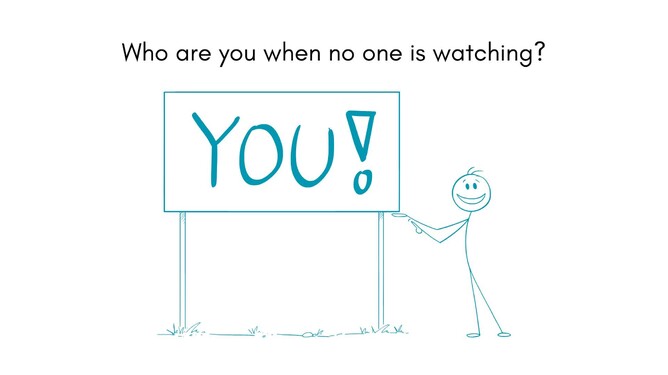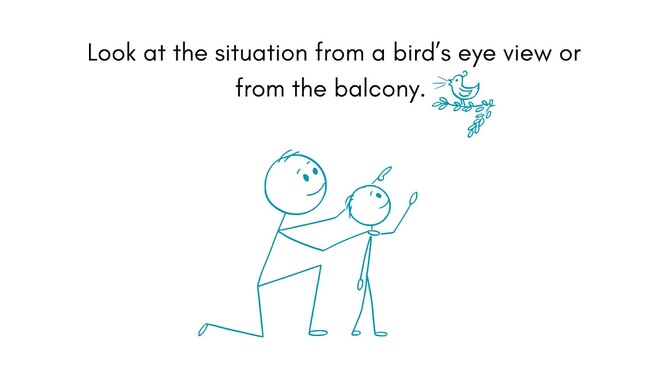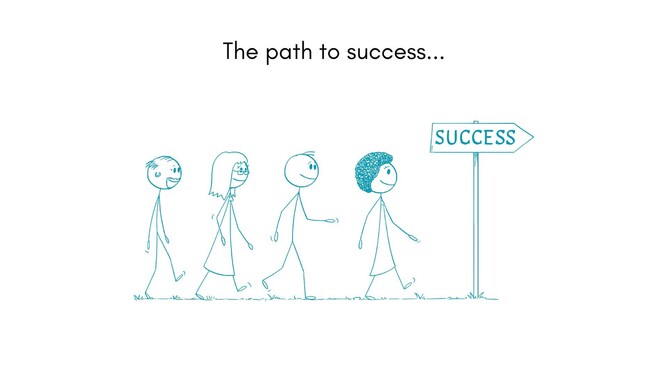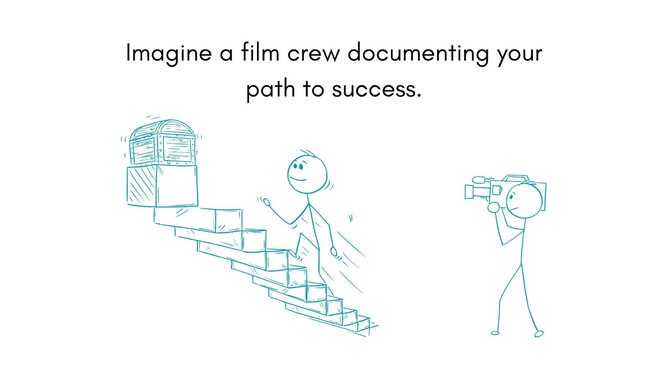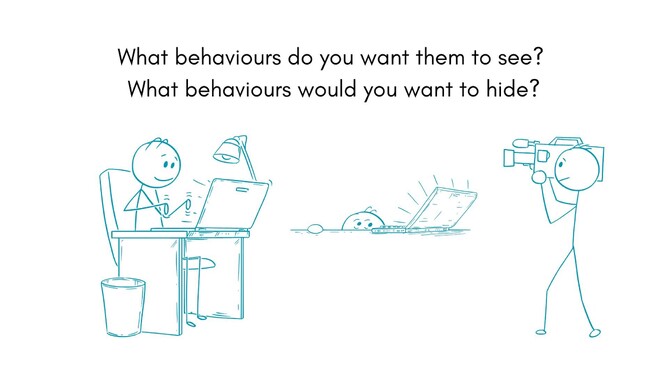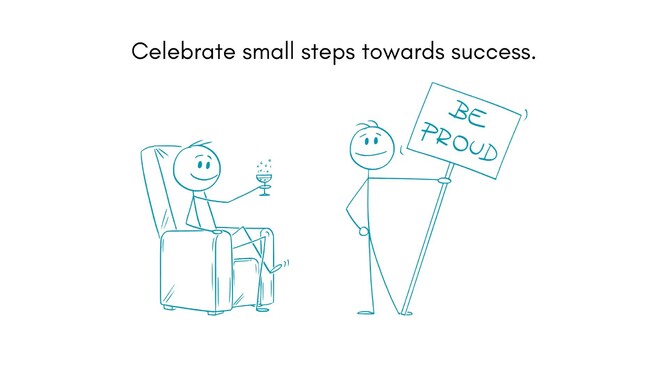Do you find yourself changing or adjusting your behaviour because you feel like someone is watching you? Sounds creepy, but I mean ‘watching’ more in the sense of looking at what you're doing, wanting to learn from you, looking up to you, or wanting to check in on the quality of your work. When people feel like they are being watched (and potentially judged), they often alter their behaviour.
This doesn’t necessarily have to be a good or a bad thing. For many people, it just is a thing.
I mainly find it interesting that people change their behaviour when they think or feel they are being watched. And you can use it to your advantage.
It can help with reflections on your progress. Perhaps you’ve set some intentions for the new year, maybe you didn’t. Regardless of when exactly you set your intentions or goals and when exactly you committed to pursuing your ambitions, now is as good a time as any to reflect on progress.
So: How are you tracking towards your current goals and ambitions? What steps have you taken? What steps are next?
Sometimes, it can help to step back and look at the situation and yourself from a different perspective. You could call it ‘bird’s-eye-view’, you could call it ‘going to the balcony’, as one of my coaches used to say. The premise remains the same: rather than being in the situation, you look at it from a vantage point, where you have a better overview of what is going on, and you consider things beyond what is right in front of you. You take in the big picture.
This can help you when reflecting: You might feel that the task you are currently working on is difficult and never-ending, but with the bigger picture in mind, you can remind yourself that this is just one step in the process towards ambition. Sometimes what is right in front of us seems like an insurmountable problem. If you find yourself in a situation like this, try looking at the situation ‘from the balcony’ or from a bird’s perspective. What would the situation look like from up there?
It is this kind of change in perspective that can be useful to work out where you are and what you want. It can also help you work out whether your behaviours are aligned with the ambitions or goals you have.
You can also try this: choose one of your ambitions, e.g. maybe you are training for a marathon, you are starting a business, you are planning a big family event, you are trying to make progress on a project at work, … choose one that is relevant to you.
Now picture yourself on the path to success (whatever that means to you). You are successful at working your way towards that ambition. Your process is well underway, and you are making good progress. And because you are successful, or likely will be, a film crew approaches you, and they ask if they can document your progress and processes. For the next few weeks, they will follow your every move as you set about achieving your goal or ambition. They are with you from the minute you wake up to the minute you go to sleep.
What will they see you do? And don’t worry, I am not assuming that you’ll spend every waking hour working on your project. I understand that you also have to do other things in life, especially if your goal is not work-related. You have other commitments during the day, such as family, work, and just general life tasks like going to the supermarket and brushing your teeth.
But still, the film crew and their director have chosen you because you do what it takes to make your ambition come to life. They want to capture what the pathway to success looks like so that others might be able to learn from you.
What will the film crew see you do?
Write down your behaviours: What are you doing? And, just as importantly, what are you not doing?
This is a good visualisation exercise you can use to identify the behaviours you think will be necessary to achieve what you want to achieve. It is also an effective tool to check in on yourself and notice any behaviours that might get in the way of achieving the ambition or goal you have set.
You might be researching or writing an essay for your university course. To complete this on time and to a high standard, you may need to read a lot: research papers that are complex and require attention and focus. So you know that you need to do this reading in the morning, with a fresh mind and plenty of energy. Instead, you might find yourself scrolling mindlessly on your phone after you get up, or you might find yourself procrastinating and cleaning the fridge instead of doing your reading (because that is obviously much more important right now…).
Picture the film crew again… what do you want them to capture? What does the pathway to success in this particular pursuit look like? I am asking these as genuine questions, because downtime and breaks will also be needed. It’s about being deliberate about them. Maybe you create yourself a schedule, you get the research papers you need to read ready at the start of the week, so you only have to pick them up one at a time during the times you have scheduled reading, maybe you need to make an appointment with your supervisor and tell them that you are stuck or unsure how to proceed.
The film crew is with you the whole way. They will also document what you do around the pursuit. What are you eating, how much are you resting, how much sleep are you getting, and who are you asking for help? They will also document the moments of doubt and worry. And they will document little moments of celebration.
What are the moments you can celebrate along the way? Is it once you have finished reading a paper, or a set of notes? Is it once you have had a difficult conversation? Write yourself a little list of milestones you want to acknowledge when you reach them.
The reality for most of us, of course, is that there is no film crew following us to document the process that leads to our success(es). And yet, we can use this little thought experiment to figure out how we need to act, what behaviours we need to engage in to make our success more likely. Ultimately, the majority of the work you do to achieve your ambitions will be invisible to others. There won’t be a reward or acknowledgement for it. But you’ll need to do the work anyway. Your success will come from what you do (and don’t do) when nobody is watching.
So, if you find yourself getting distracted and veering off the path that you think will lead to you achieving what you want to achieve, come back to picturing the film crew: what sort of behaviour would you want them to document?
That’s me for another week. If you know someone else who might find this blog helpful or interesting, please share it with them. And, as always, I’m keen to hear from you. Message me on IG @mankertina.
Key Points:
Regular reflection helps you to stay on track towards your goals and ambitions.
Shifting your perspective can help you understand your progress so far and the next steps you might need to take.
Imagining someone documenting your progress can help you be deliberate about your behaviours when no one is watching.
Reflection Questions:
What is your most helpful behaviour when no one is watching, and what is the least helpful behaviour when no one is watching?
What are the key behaviours that will help you be successful in your pursuit?
If you were to give someone else advice on doing what you are currently doing yourself, what advice would you give them? (Now, take that advice yourself.)
